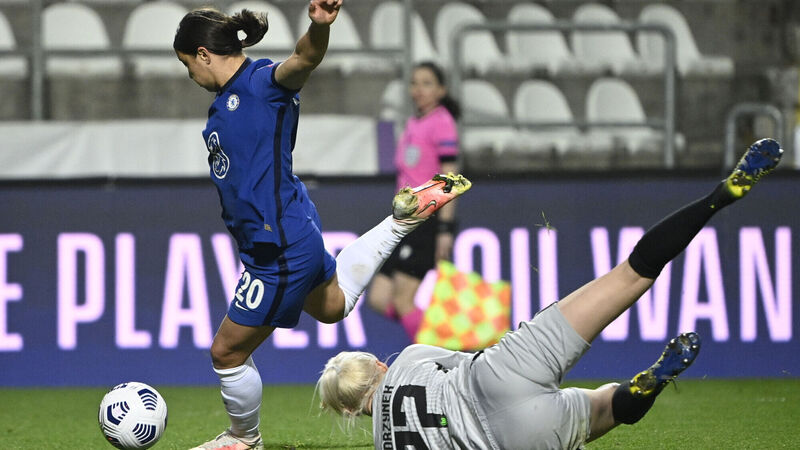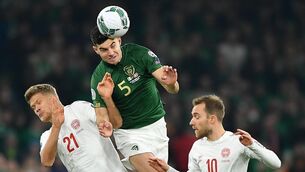Larry Ryan: Monstering up women's football with a new broadcast deal

OUT OF REACH: Chelsea’s Samantha Kerr rounds Wolfsburg goalkeeper Katarzyna Kiedrzynek to put the Blues on their way to a 2-1 victory in
Wednesday’s Champions League quarter-final first leg at the Ferenc Szusza Stadium in Budapest.
A landmark week means an important philosophical question may soon be upon us — do we want the best female footballers in the world to own Louis Vuitton washbags too?
It is five years now since football’s most solid citizen, Seamus Coleman, ruled that Louis Vuitton washbags represented all that had gone wrong with the men’s game.









